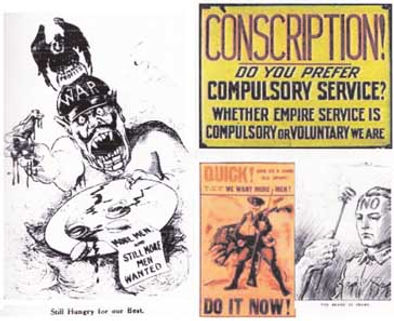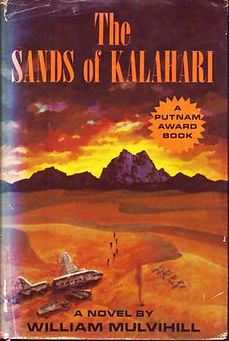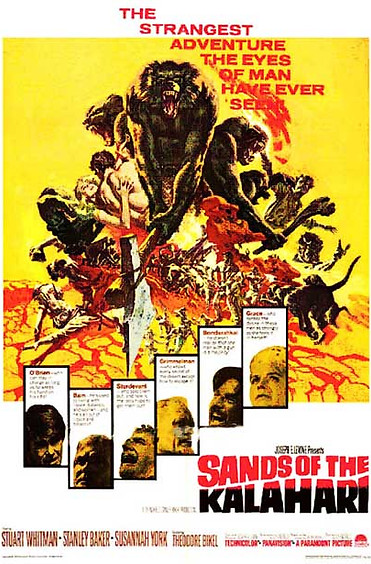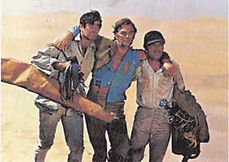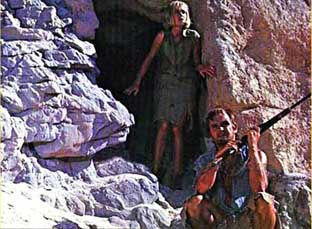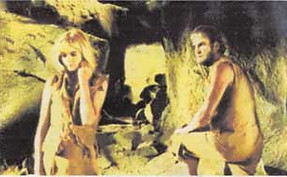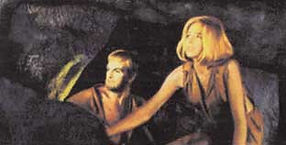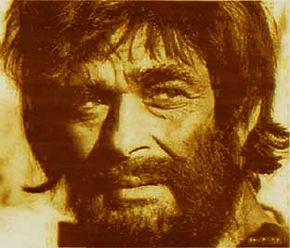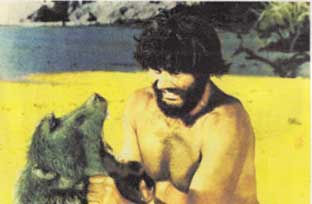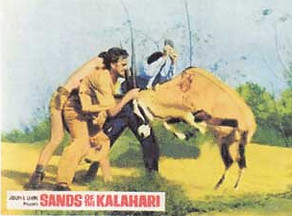Australia would send troops to assist the Americans, Menzies decreed. And to shore up the depleted military forces, (and perhaps to demonstrate how arrogantly and carelessly he wore his absolute power) he made what had been historically the most unpopular decision that any Australian government could possibly make—the re-introduction of conscription.
So strongly did Australians oppose the draft that even at the peak of the Second World War, the soldiers in the front line—although desperately outnumbered by the enemy—voted resoundingly against it. But Menzies no longer cared about popularity and forced it through the parliament amid thundering protestation.
Civilisation ran backwards in the novel the novel by William Mulvihill and the subsequent movie by Stanley Baker Sands of the Kalahari, which as a follow-up of his remarkable Zulu, disappointed most people and still isn’t generally liked. But it had some interesting things to say and deserves higher regard. Maybe the real problem was that nobody wanted to face up to its core message, that humans are really animals. Except, of course, me.
When a commercial flight is delayed, UN diplomat Dr. Bondrachai (Theodore Bikel) hires a small private plane and other stranded passengers join him: big game-hunter O’Brien (Stuart Whitman), Grace (Susannah York), engineer Bain (Stanley Baker), Grimmelman (Harry Andrews) while Dutch pilot Sturdevan (Nigel Davenport) is at the controls. But the plane runs into a cloud of locusts and is forced to crash-land in the middle of the Kalahari Desert.
The group, far from civilisation and in a fiercely hot and hostile terrain, take shelter in an outcrop of rocks where they share the caves and water supply with a pack of wild baboons. As the battle for survival begins, so does the struggle for dominance and especially the possession of Grace. Sturdevan tries to assert his pilot’s rights but Grace rebuffs him and fights off his attempted rape. Sturdevan thereby stalks off in a huff, into the desert to find help.
O’Brien, who has the only weapon, assumes leadership, and with Grace panting after his alpha-role, decides their chances of survival are better without the others. He forces Bondrachai to leave at gunpoint and when Grimmelman refuses to do likewise, O’Brien kills him. Bain flees and watches events from a safe distance, as do the baboons.
In the best scene in the film, Sturdevan stumbles and falls at the foot of a huge sand dune and, when he looks up, sees the superstructure of a ship passing. It is not a mirage—he has reached the coast. Although he then has a lot of trouble convincing the authorities that he is not a diamond smuggler because they refuse to believe his claims of having crossed the desert on foot. Bondrachai also survives, found and nurtured by bushmen.
Meanwhile, O’Brien’s brutality finally convinces Grace to take up with Bain instead. Bain overpowers O’Brien and chucks him down a deep hole, but an overnight rainstorm fills the hole with water and allows him to escape. Then the rescue helicopter arrives, and Bain and Grace call to O’Brien, but he refuses to come out. He knows civilisation will not welcome him, and instead fights and kills the leader of the baboons, who, in the remarkable final scene, gather around him, accepting his leadership.
I just can’t imagine why only I seemed to like it.
